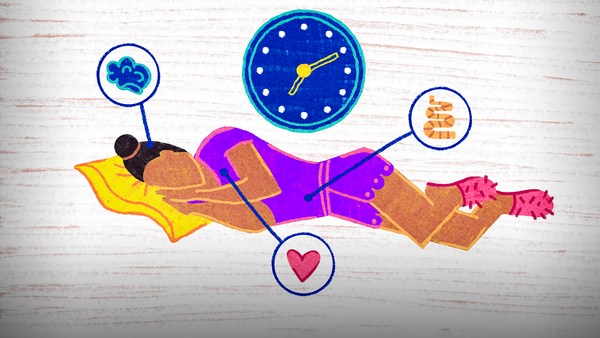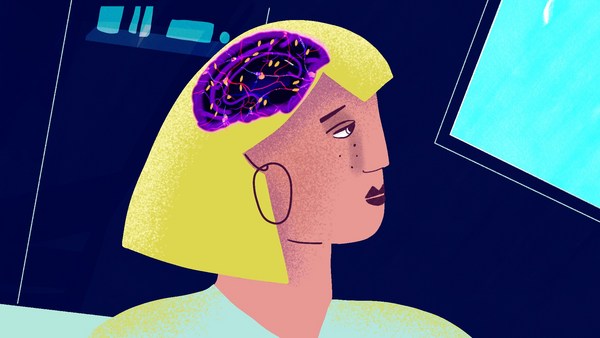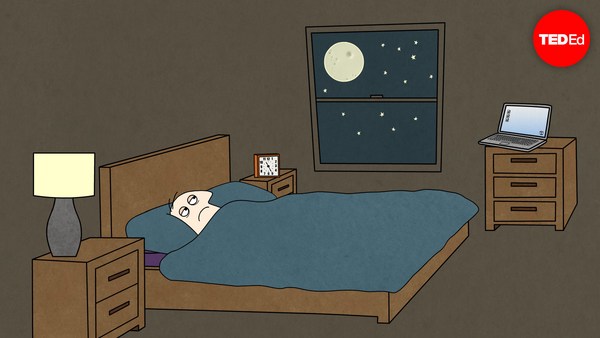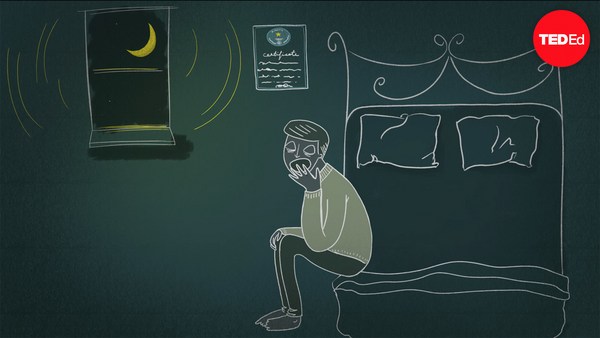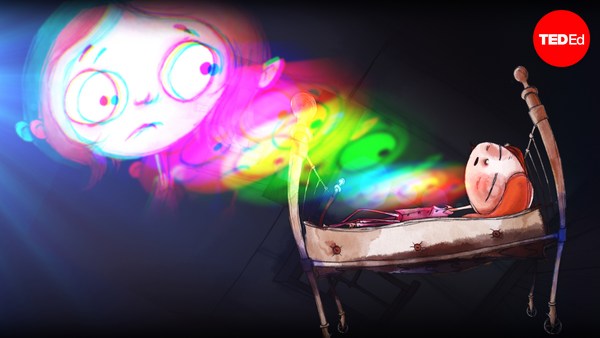Melatonin is a hormone, often called the hormone of darkness, simply because melatonin tells your brain and your body that it's nighttime and that it's time to sleep. Melatonin is naturally produced by your brain, and it's released by a very small gland deep within your brain, called the pineal gland. However, you can also buy melatonin in certain countries, and some people will try to use it as a sleep aid. But melatonin isn't quite as effective as you may think.
[Sleeping with Science]
For example, if you pull together all of the recent scientific studies on sleep and melatonin, which is a technique that we call a meta-analysis, we've discovered that melatonin only increases the speed with which you fall asleep by 3.9 minutes and only increases the quality of your sleep, what we call your sleep efficiency, by just 2.2 percent.
And this is very understandable, since the role of melatonin is primarily in regulating the timing of your sleep, rather than being involved in the generation of sleep itself. That's down to a very different set of brain mechanisms. It's also important to understand that melatonin is not well regulated as a supplement in several countries. As a result, the purity and the strength of melatonin that you buy is often unreliable.
So if you're looking to optimize your sleep, it's best to focus on the basics. The things that we know make a real difference, things such as regularity, keeping your bedroom cool at night, getting darkness in the evening, for example, trying to dim down half of the lights in your house in the last hour before bed. And then, reverse-engineering this by getting plenty of natural daylight in the morning hours. And finally try to get some form of physical activity each day.
These things are much more likely to help your sleep, rather than looking to melatonin for some kind of sleep assistance.

